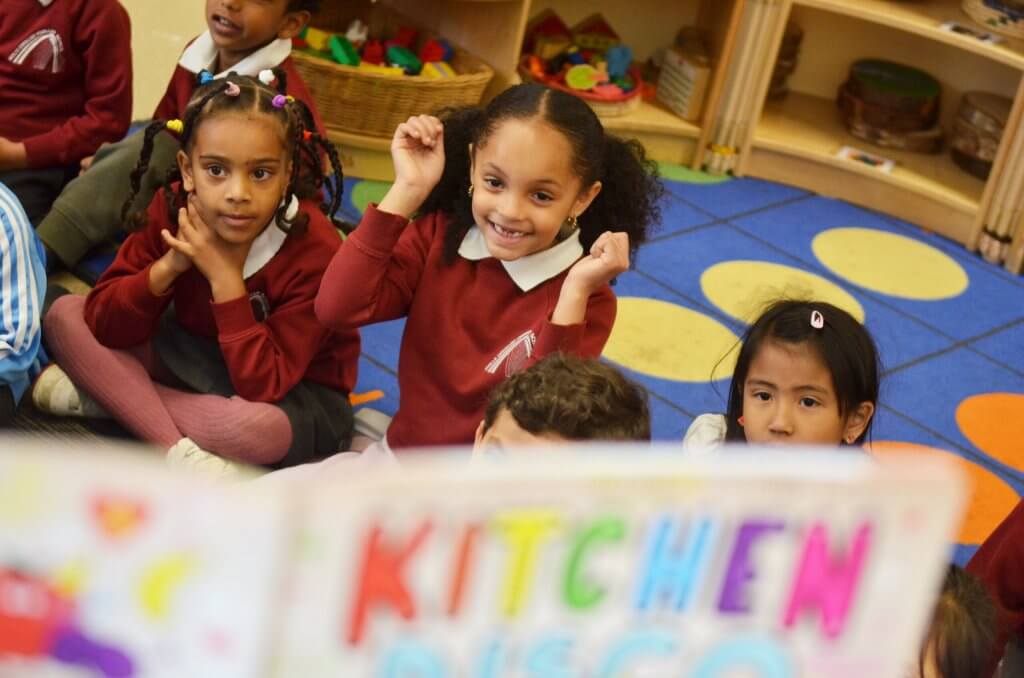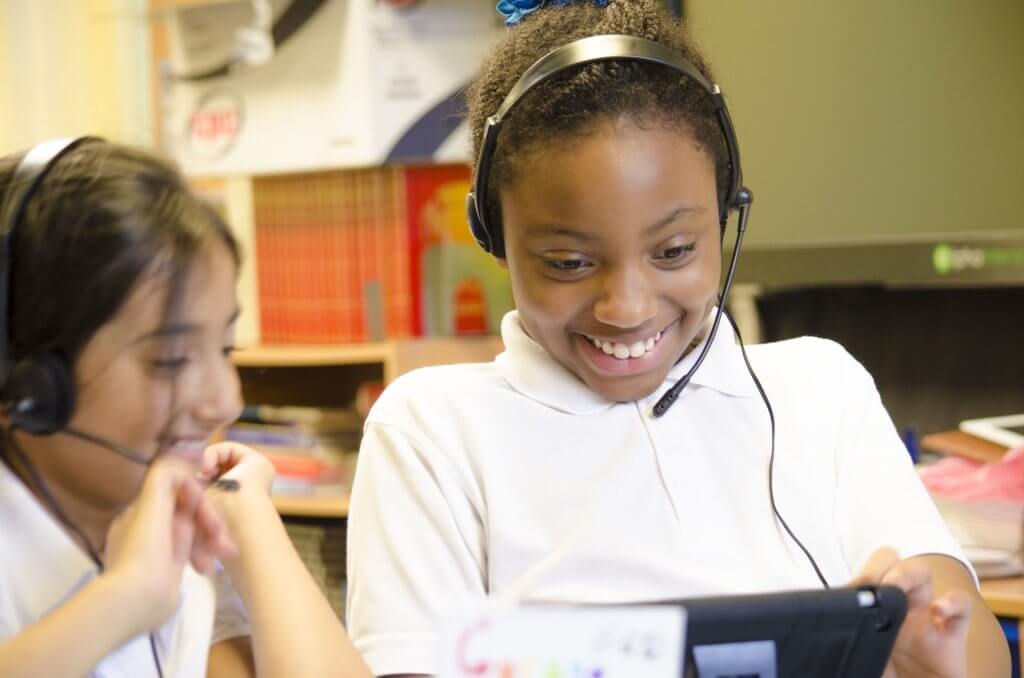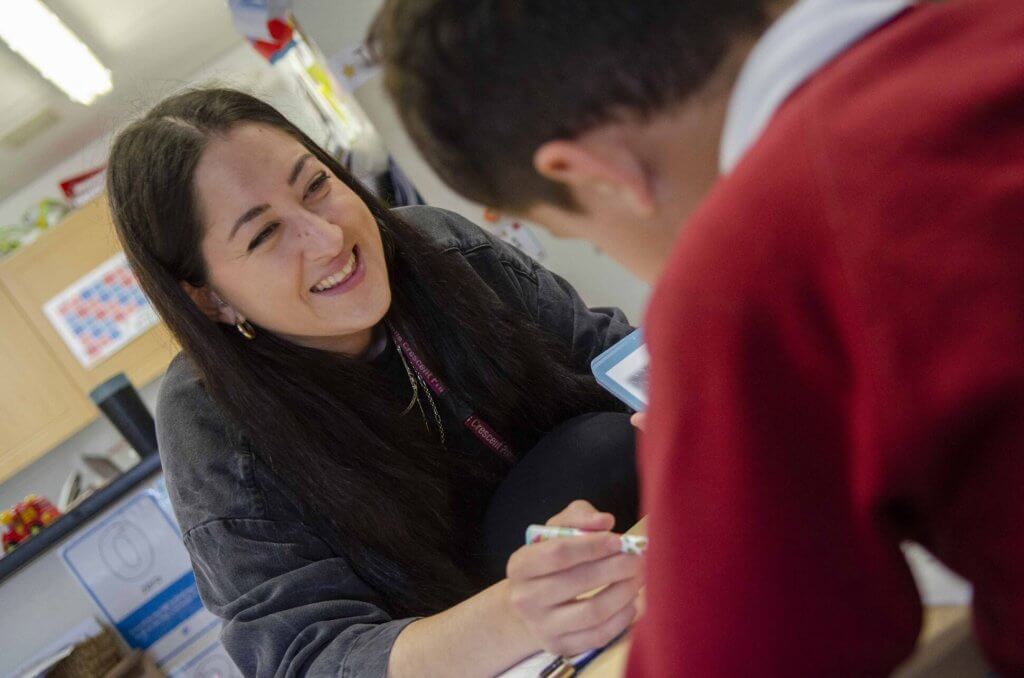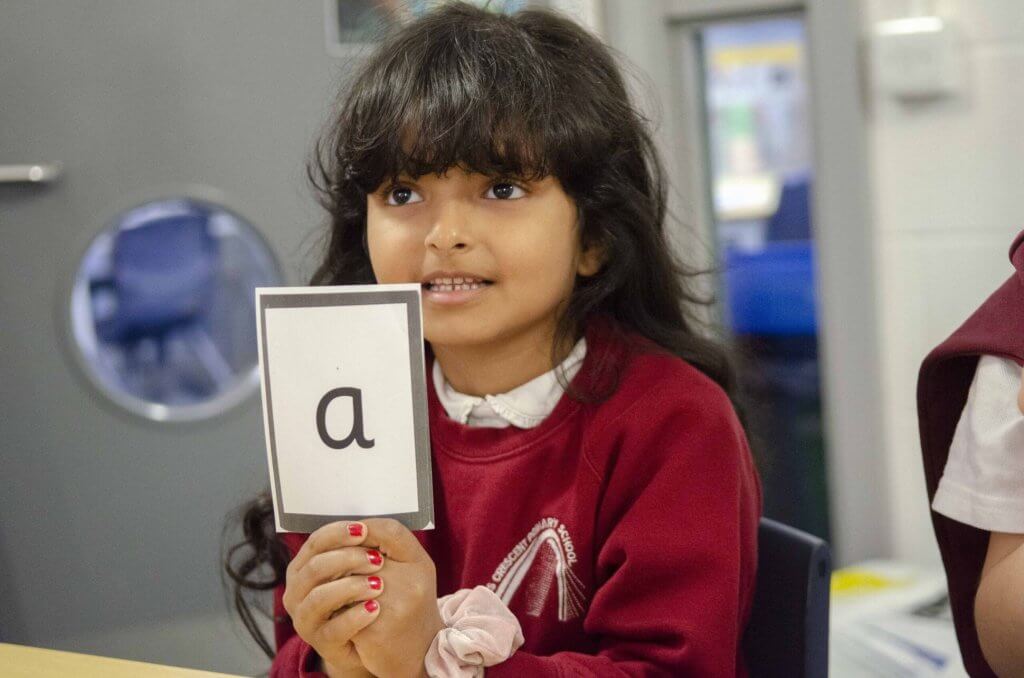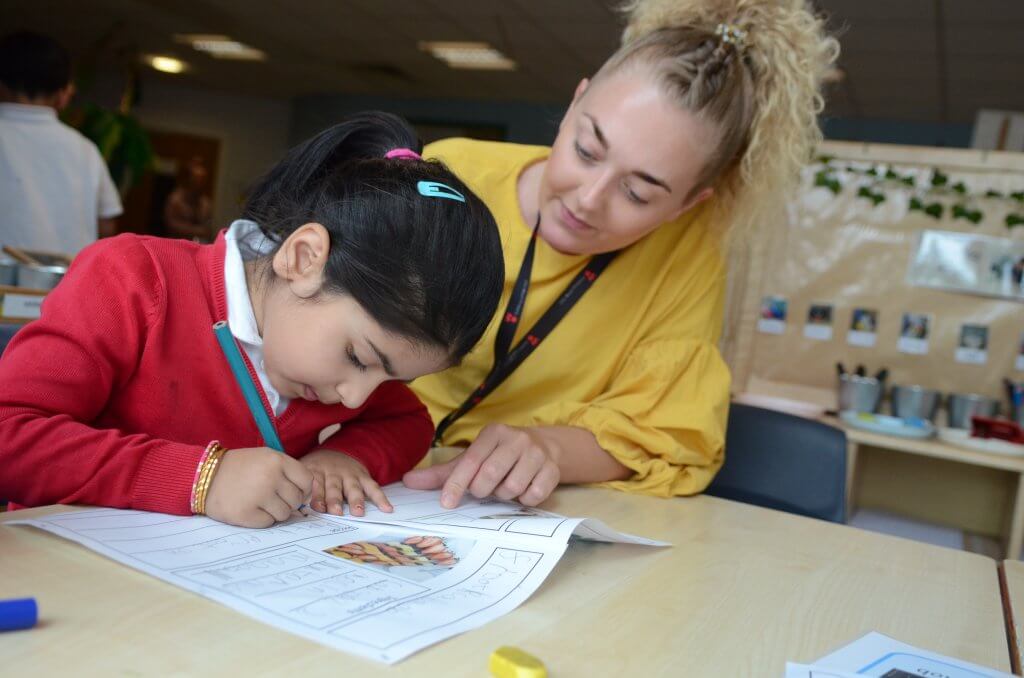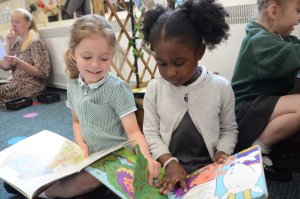We all know the importance of reading and as such many schools have put much time and effort into developing their Reading curriculum.
Thankfully, schools are now encouraging reading for pleasure wholeheartedly, whilst also emphasising the importance of comprehending a wide range of texts throughout the curriculum. But what of early reading and phonics? Research such as the DfE’s EPPSE 3-16 project (2014), has proven the impact of good early years provision.
In any good curriculum, there is a focus on building strong foundations, and this is particularly key to reading. The Bold Beginnings (2017) report emphasised the importance of securing the essential skill of reading; starting quickly, from the first week of the academic year. It detailed how schools, in which outcomes were above the national average, placed an emphasis on the teaching of reading in a “…systematic and structure way, building up children’s phonic knowledge and skills explicitly and providing regular story times where children could be taught to understand what they heard.”
Recently, early reading has been cast into the limelight by its prominent position within the new OFSTED Education Inspection Framework (September 2019). There are clear parallels between the practice observed in Bold Beginnings, with what inspectors will be evaluating on the new framework. Paragraphs 296 to 298 set out how the teaching of early reading will be inspected:
“296. During all inspections of infant, junior, primary and lower-middle schools, inspectors must focus on how well pupils are taught to read as a main inspection activity. They will pay particular attention to pupils who are reading below age-related expectations (the lowest 20%) to assess how well the school is teaching phonics and supporting all children to become confident, fluent readers.
297. Inspectors will listen to several low-attaining pupils in Years 1 to 3 read from unseen books appropriate to their stage of progress. They should also draw on information from the school’s policy for teaching reading, phonics assessments, phonics screening check results and lesson visits.
298. In reaching an evaluation against the ‘quality of education’ judgement, inspectors will consider whether:
- the school is determined that every pupil will learn to read, regardless of their background, needs or abilities. All pupils, including the weakest readers, make sufficient progress to meet or exceed age-related expectations.
- stories, poems, rhymes and non-fiction are chosen for reading to develop pupils’ vocabulary, language comprehension and love of reading. Pupils are familiar with and enjoy listening to a wide range of stories, poems, rhymes and non-fiction.
- the school’s phonics programme matches or exceeds the expectations of the national curriculum and the early learning goals. The school has clear expectations of pupils’ phonics progress term-by-term, from Reception to Year 2.
- the sequence of reading books shows a cumulative progression in phonics knowledge that is matched closely to the school’s phonics programme. Teachers give pupils sufficient practice in reading and re-reading books that match the grapheme-phoneme correspondences they know, both at school and at home.
- reading, including the teaching of systematic, synthetic phonics, is taught from the beginning of Reception.
- the ongoing assessment of pupils’ phonics progress is sufficiently frequent and detailed to identify any pupil who is falling behind the programme’s pace. If they do fall behind, targeted support is given immediately.
- the school has developed sufficient expertise in the teaching of phonics and reading.”
With or without OFSTED, this is all excellent practice for the teaching of early reading. So how can schools ensure their early reading curriculum is well-developed? Interrogate these key questions to promote discussion about your early reading offer.
What does your Reading curriculum look like? How do you ensure progression?
As with all areas of the curriculum, we have to begin with what we want children to leave our schools being able to do. What are we running towards? If schools have not yet had these conversations about reading, they might find completing a subject curriculum audit useful.
In my view, our aim is surely for all children to leave our provision being confident, resilient readers, able to decode and understand a wide range of different texts across the curriculum. We want children to love reading, and that can only happen if children can read. This begins with early reading and phonics.
With Phonics Screening Check scores improving nationally since its inception in 2012 until this year, many schools who achieve at least national average have moved their focus on to other areas of reading. However, shouldn’t our aim be for all children to be successful decoders?
In order for this to happen, schools have to be clear on their vision and methodology for the teaching of early reading. This requires schools to think carefully about their choice of phonic scheme and teaching methods, assessment and intervention. A number of schools have gone through multiple phonics schemes over the past few years, attempting to find something that suits them.
Consequently, many schools have picked and chosen elements of schemes, rather than using one consistent programme. OFSTED is clear that, although no one programme is preferred, schools must ensure that the programme they put in place is clear, shows progression and that the schemes match content and coverage from class to class.
If you currently follow one scheme, then this is easy, as publishers such as Read Write Inc. have their progression set out clearly. However, if you use elements of different schemes, it is useful to formulate your own progression, after checking that the elements you use create a consistent approach. We can support you to create a bespoke early reading and phonics progression that suits your needs.
It is also crucial to avoid reading being reduced only to phonics, no matter its importance. Children should also have many opportunities to read and enjoy books for pleasure, outside of phonic lessons and the reading scheme. These opportunities must be prioritised in the school timetable, with staff’s subject knowledge of children’s literature being a key focus of CPD. Does your school’s reading provision include this? The One Education Reading Award supports schools to embed an excellent reading curriculum in their schools, including resources for building teacher subject knowledge; ideas to develop Reading for Pleasure and much more. Reading Award schools have had success with their inspections under the new OFSTED framework:
Dorrington Academy, Birmingham, who are working towards the Reading Award for the first time, achieved Outstanding, with their report reading:
“The teaching of reading starts from the moment pupils join the school. Well-trained staff teach phonics daily. The teaching of reading and other subjects is precise and accurate. Phonics sessions take place in small ability groups and are stimulating and fun. Pupils read often, both at home and at school. They talk with enthusiasm about their favourite books and authors and have a love of reading.”
Abbey Hey Primary Academy, Manchester, who are working towards Gold after previously achieving both Bronze and Silver, achieved Good, with their report stating:
“The top priority for leaders and staff is to teach pupils to read confidently and fluently. From Nursery onwards, pupils learn the phonics skills that they need. Teachers are very confident and knowledgeable in teaching phonics. Staff quickly help those pupils who find reading more difficult to catch up. Pupils told us that they enjoy reading. They said that staff encourage them to read a lot at school and at home.”
What happens day to day? How do you know it happens?
Many schools have wonderful policies, clear timetables and curriculum overviews, but when asked ‘how do you know this happens?’ struggle to answer. Often, this is down to a lack of subject leader time to find out. OFSTED’s decision to focus on ‘deep dives’ into curriculum areas mean subject leaders need to keep informed about the day to day running of their subject. Leaders need time to see what is happening in their subject, finding out whether aspects of the school’s reading curriculum are being done; the consistency of approach and the impact of teaching on children’s learning.
I often suggest Reading leaders focus on one small element of their curriculum each week to keep this manageable, e.g. How is Reading for Pleasure promoted within Nursery? Or Which set of phonemes are Reception working on, does this follow our expected progression?
From this knowledge comes understanding, and the power to change practice. We will be looking at monitoring for impact in our second Literacy Leader Network on 13th February. To find out more or book a place, please visit our Training Courses page.
How does your book stock support early reading?
In terms of book stock, we need to focus on two strands: a school’s reading scheme and the other books a school use to promote a love of reading. In the best provision, these two aspects are intertwined to create a holistic reading offer. Schools must ensure that the books they use as their reading scheme are closely linked to their chosen phonics programme, so that children can practise and consolidate the GPCs they have already learned.
Many schools have bought multiple schemes are various times, and due to each publisher’s individualised progression, these schemes often do not match up. This is not to say that schools need to buy new books from one scheme only, but that schools need to audit and evaluate their existing reading scheme book stock, arranging books carefully by their GPCS, rather than relying on the book’s banding.
Where schools do have the funds, and feel they need to update their reading scheme, it would be most helpful to purchase books from one reading scheme only to ensure the progression is clear. Peters books can support you to decide which Phonics books are the best for you. For more information, click to download their latest brochure or visit their website.
Although phonically decodable books are key to children learning to read, there is also a need to expose children to a wide range of texts to build their love of reading.
It is important that children listen to texts regularly to build their understanding of reading and the wider world. This can happen in story time, but also in Guided Reading, where sometimes the focus can be on enjoying a text being read aloud and understanding, rather than individual reading and decoding. Many schools also choose to supplement their reading scheme by allowing children to take home a book to share with their families, as well as their decodable Reading scheme book.
By doing this, schools encourage parents to be part of a child’s reading journey and be part of a reading family, which research shows positively impacts attainment too. Schools therefore need plenty of books, of all types, to promote this enjoyment of reading. Traditional tales, rhyme and repetitive language are particularly important focuses for early reading, however other genres such as non-fiction also play a key role in reading development. It is important to gauge which books you have in school and where your gaps in book stock are.
Do your books represent all the children in you school? Are any groups or subjects underrepresented? You may wish to use our free resource attached to audit your current book stock to help you achieve early reading success for all. Download Book audit.
Some of our favourite recent books to build a love of Reading in EYFS and KS1 are:
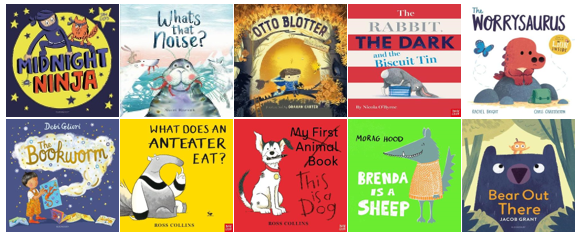
What are you doing to help those children who need additional support?
Gill Jones, Deputy Director for Early Education has said that Ofsted’s rationale for making the Reading deep dive compulsory is that “…it’s so important that children learn to read fluently as quickly as possible.”
Schools must take immediate action to support children at risk of falling behind in reading. This does not necessarily mean intervention programmes, although schools may choose to travel down this route. Schools must find out what works for their pupils – for some, this could just mean more opportunities to read to an adult; for others, it may be plugging gaps in phonic teaching. Whatever the method, timely and appropriate intervention needs to be made for each child to reach their reading potential – it cannot wait until KS2.
If a school feels that they do require an external intervention, the free resource from the Dyslexia SPLD Trust is an excellent way to judge the efficacy of different options for intervention.
Early reading often is focused on the EYFS and KS1, however, we must ensure that all early readers progress quickly, no matter their entry point. Many schools have burgeoning groups of children with English as an Additional Language, and it is important to think about what support is being put in place to support these children to become fluent readers. Accessing quality phonics provision, commensurate and appropriate to their age, is key, as are other aspects to early reading.
Ofsted may have refocused schools on their approaches to early reading, however regardless of the impetus, early reading is key.
As Dr Seuss remarked “The more that you read, the more things you will know. The more that you learn, the more places you’ll go.”
One Education will be running a two-day Early Reading and Phonics CPD course on 6th May and 8th July. Find out more information and secure your place here!

